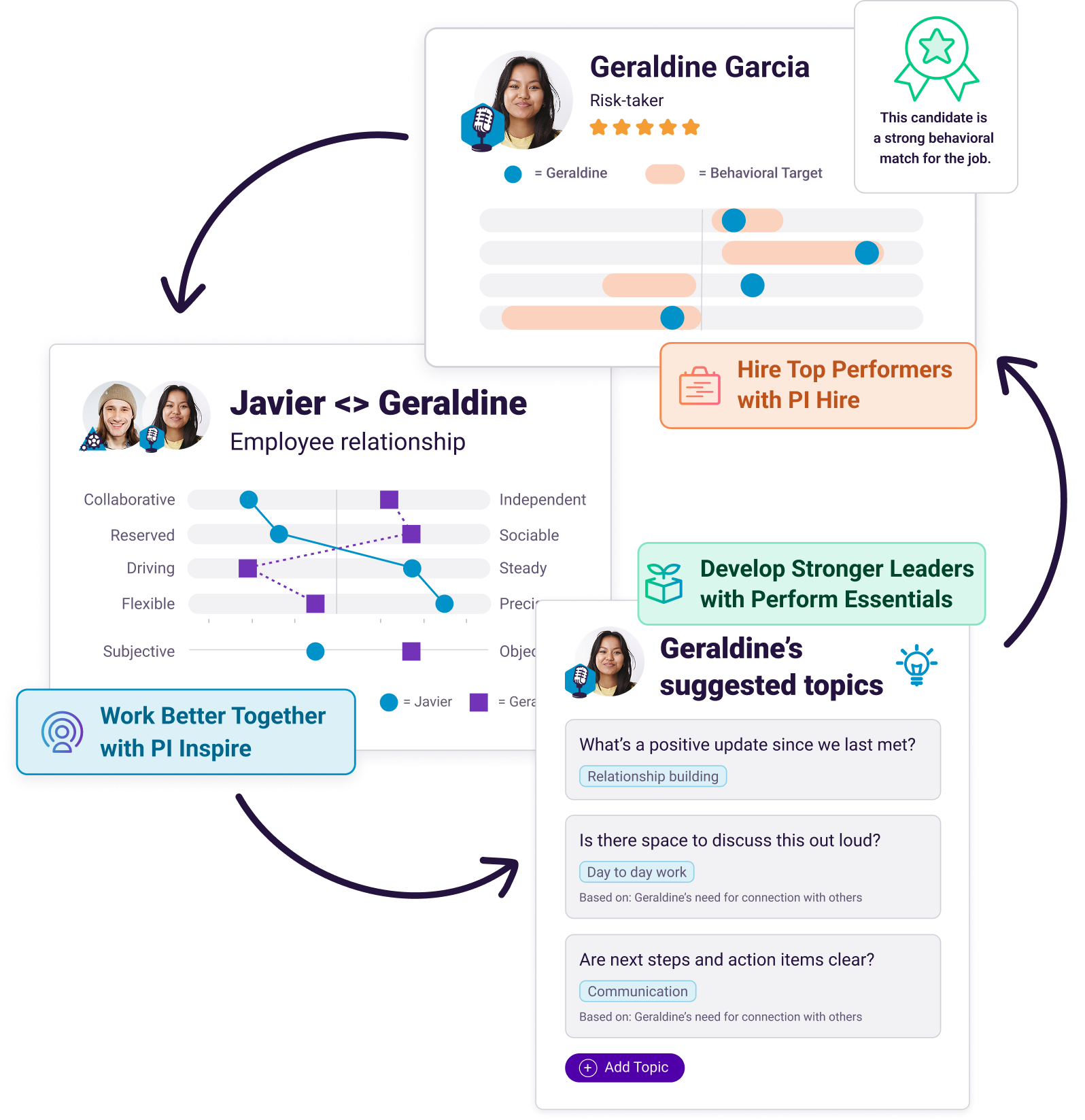The results are in from our cognitive ability study, and it’s revealing positive correlations with sales performance.
Our science team recently ran a study of financial sales positions at a small business loan outfit located in the Midwest, USA. 40 sales representatives participated in the study that helped us determine if general cognitive ability, or g, correlated to overall sales performance. We were excited to find that cognitive ability explained over 18% of overall sales performance of this group.
The cognitive ability assessment used in this study was our own PI Learning Indicator – a timed, multiple choice, assessment that includes verbal, numerical, and abstract reasoning questions to arrive at a score, which is a measure of general cognitive ability, or g.
There were several areas where we found positive correlations between cognitive ability and sales performance. Here are some of the key areas I thought were particularly interesting.

1. Sales people with higher cognitive ability build a stronger pipeline of potential clients.
There is more to building a sales pipeline than simply pegging a number on a deal. The ability to predict the size, timing, and potential objections that may shape the eventual deal outcome, if any, certainly play into accurately predicting a solid pipeline. People with higher cognitive ability are likely quicker to understand how the pipeline needs to be built, what the conversion rate of a specific account-type/deal-size typically is, and can therefore better strategize which prospects they should turn into true opportunities and work to close.
2. People with higher cognitive ability can understand potential clients’ needs faster.
The ability to take generic, or incomplete information, and determine how it may impact an ideal scenario or process, is critical for sales people to predict objections and maintain an offensive position throughout the sales process. A sales person’s problem identification ability is directly correlated to cognitive ability. Anyone with a deliberate process for problem identification and objection handling will surely do better than those that don’t, but the speed at which they can process information and clues to predict objections and quickly identify needs will obviously lead to better results and reduce time-to-close.

Join 10,000 companies solving the most complex people problems with PI.
Hire the right people, inspire their best work, design dream teams, and sustain engagement for the long haul.
3. Employees with higher cognitive ability respond faster and more efficiently to client requests.
“Timing is everything.” “You have to strike while the iron’s hot.” We’ve heard it all. Bottom line, the quicker and more helpful the response, the more likely the deal is close or the client is to satisfied with your service. Someone’s cognitive ability directly impacts information processing speed. People with higher cognitive ability are perceived as not having to think about recalling where items are located or determining how best to respond considering the unique circumstances of an incident or client request. This is coming up with the solution versus pinpointing the problem, which was covered in item number two – two very different things.
4. Sales people with higher cognitive ability can quickly learn and understand the features and benefits of new products or solutions.
If your company has been manufacturing cardboard boxes for the last 50 years, chances are the core features and functionality of our products are not changing all that much or at a very rapid pace. On the flip side, consider a company who recently launched a brand new product that leverages brand new technology. It’s obvious that sales people working for the latter company are going to need adapt to change much faster and grasp new concepts much quicker than those at the box company. While the box company may need to establish a decent threshold of cognitive ability for its sales people, the technology company will find itself at a severe disadvantage, or advantage depending on how you look at it, in the market.
5. Sales people with higher cognitive ability naturally adapt to changing environments better and therefore have a knack for continuously developing market and industry expertise.
If your brain were a sponge, then cognitive ability would be a measure of how quickly that sponge can absorb. People with higher cognitive ability tend to be able to absorb a lot of information constantly, see through the noise, and retain the useful pieces of information. Now, more than ever, selling products in the information age means that sales people have to not only have vast amounts of knowledge, but also have the ability to process this information to stay ahead of the curve.

The data from our study shows that Sales Leaders who focus on cognitive ability when hiring sales people will be at a much higher advantage than those who don’t. In fact, data shows that cognitive assessment data can help us achieve close to a 4-times increase in our ability to predict on-the-job-performance (OJP).
So, you may be thinking “does cognitive ability always matter”? No, of course not. Cognitive ability is just one of many factors to consider when evaluating candidates or employees. There are plenty of successful people out there who may not have the highest cognitive ability. For them, they likely made it to where they are on grit, hard work, or people skills. That said, when it comes to getting new sellers up to speed, sometimes we are in a time crunch – this is when considering cognitive ability can make all the difference.








